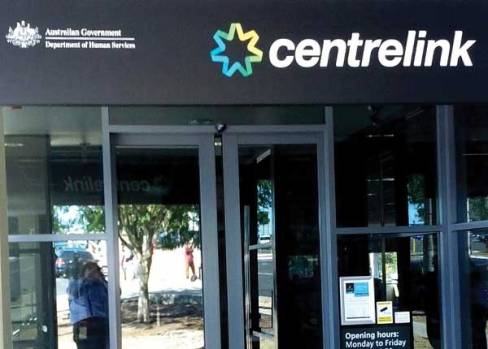Almost 35,000 staff at the federal Department of Human Services (DHS) could have personal leave and flex time significantly curtailed and their working week extended by up to half an hour under proposals floated in the current round of enterprise bargaining according to the Community and Public Sector Union (CPSU).
The main union representing the federal public service has told DHS employees that a current offer on the table from their employer amounts to a 1.36 per cent pay cut, as industrial tensions increase at the massive welfare agency.
The showdown between unions and management comes as negotiations in proper kicked-off with a bold and potentially provocative bid by the Abbott government to extend working hours by six minutes a day, a nominally small amount that still represents a dilution of conditions.
It may not sound like much, but the six-minute target could equate to (at least on paper) a boost of more than $100 million in terms of employee output; money the CPSU will be unlikely to want to hand over at all, let alone without a fight over other trade-offs.
Conversely, DHS estimates that for every one per cent pay increase, per year “equates to around $181 million over the three year life of the new agreement.”
With the stakes set so high, senior management at DHS are now putting forward what they see as the merits of their case and proposals to staff, emphasising that the bargaining process is about talking ideas through.
“It’s important to remember these ideas are simply the current proposals, and are still being actively discussed,” DHS General Manager, Hank Jongen told Government News.
Mr Jongen said DHS was now working to have an agreement “that complies with the bargaining policy for our staff to consider at the earliest opportunity”, adding that there have now been nine days of bargaining.
This was “more than any other agency” Mr Jongen said, emphasising that “the department is committed to putting the agreement to the vote as soon as possible.”
DHS says that its initial reviews of the CPSU’s log of claims “indicate they would impose a very significant impost on the department over the life of the agreement.”
Human Services is seen as a key target in wider APS negotiations, partly because of its big headcount, but also because its employees are at the forefront of delivering major welfare reforms contained in the federal Budget.
The ability of the Abbott government to push, and ultimately get, its own employees to accept new and more flexible workplace condition is being closely watched by private sector employers and their advocacy groups as a key test of resolve to push through industrial relations change, especially on the topic of pay and leave entitlements.
Both DHS and the Australian Taxation Office are in the crosshairs over workplace changes because both carry the biggest civilian headcounts in the Commonwealth bureaucracy.
In notifications to its members, the CPSU claims that apart from DHS daily working hours potentially being increased from 7 and-a-half-hours to six minutes more, personal leave – which is essentially sick leave, carer’s leave and other compassionate allowances – will fall from 18 days per year to 15 days per year.
The issue of personal leave levels is particularly sensitive at frontline agencies like Centrelink and child support where face-to-face case workers and call centre staff routinely face hostile and sometimes abusive clients.
The issue of intensified client hostility for frontline welfare staff has recently come into sharper focus because automated online channels are soaking up a much greater proportion of less challenging clients who were previously dealt with over the counter, thus leaving retail-facing staff with a greater proportion of people with far more difficult issues and behaviours.
Another potential irritant for welfare staff, and their industrial representatives, is a proposed downward adjustment in so-called flex-time arrears that the CPSU says DHS wants to cut from a maximum “flex debit” of 22 ½ hours to 16 hours.
Higher Duties Allowances, which is extra pay for acting in a more senior role, are also in the frame.
The CPSU says DHS now wants to push-out the qualifying period for these from one day to 10 and potentially 20 days.
DHS isn’t backing away from what it sees as the need for change says it wants to see ideas for productivity gains from the union.
“We are exploring every possible option in developing the new agreement. We have asked all bargaining representatives, including the CPSU, to provide ideas for productivity gains,” Mr Jongen said.
Mr Jongen said productivity and savings options the department “or other non-union bargaining representatives” have put forward included increasing working hours to 38 hours per week “which equates to an extra 6 minutes per day.”
He also confirmed that increasing the minimum time before higher duties allowance is payable was on the table, as well as changes to the accrual of personal/carer’s leave and changes to flex time accrual.
Managing underperforming staff is also in the cut and thrust of negotiations with the so-called ‘shape-up’ period of counselling for performance management proposed to be shrunk from 24 weeks to 10 weeks.
The CPSU says such a move would “reduce the transparency, fairness and accountability of the process for all staff.”
Mr Jongen said that managing underperformance at DHS “remains an important issue and our preference is to move to a streamlined arrangement.”
Comment below to have your say on this story.
If you have a news story or tip-off, get in touch at editorial@governmentnews.com.au.
Sign up to the Government News newsletter



I could easily work for an extra six minutes. I frequently do.
Why oh why do people make flippant comments about things they know nothing about. It’s not just the 6 min it’s a raft of extraordinary smash and grabs that are proposed. Staff daily face violence and abuse and are thanked with cuts to pay and condition. Don’t be so smug, this is a test case. First the public service and then private enterprise. Workers need to stand together and fight these extreme ideals, this is the start of an emerging class war.